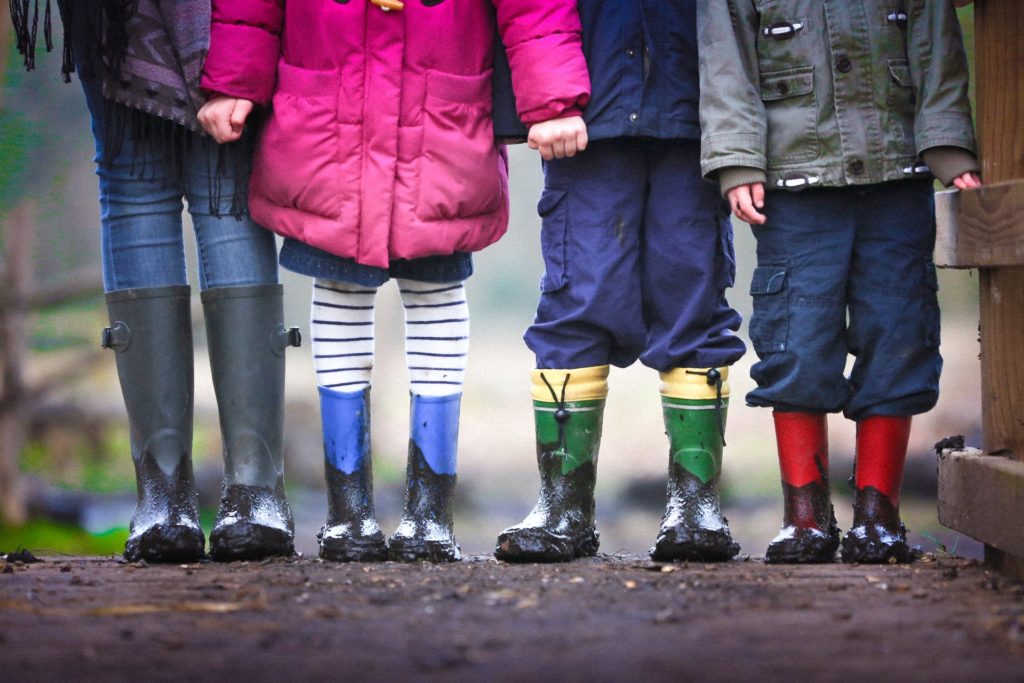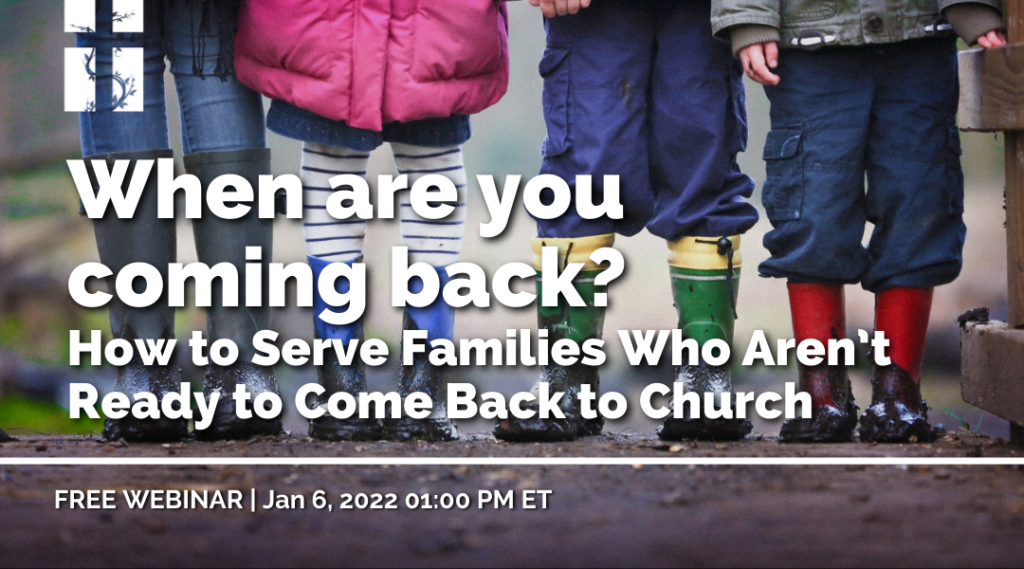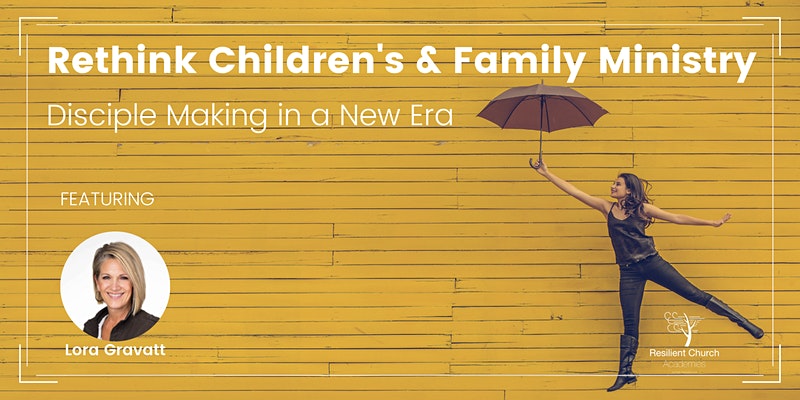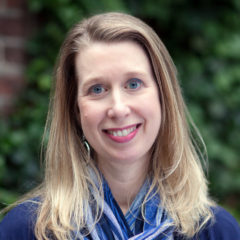In the midst of the pandemic, I was approached by the leadership of the church to consider taking on some leadership in the area of children and family ministry. Why? Because families were struggling. In our context, virtual school had been dragging on for many months, parents were exhausted from managing all aspects of the household; their kid’s education, their jobs, and anxiety among both parents and children was epidemic. Virtual Sunday School, put in place early in the pandemic, had dwindled, and we needed to rethink the ministry.
I can honestly say that, while this hasn’t been the easiest season of ministry, it’s been one of the most amazing seasons of ministry. We are seeing families worshiping together, playing together, and forming connection with each other in ways we didn’t see in the drop-off line at the children’s pre-pandemic children’s programs.
“We Can’t”
There’s a a familiar refrain of church leaders when it comes to ministry with children and families as the pandemic drags on: “We can’t.” I get it…leaders are exhausted and it’s been a long road of pivots.
Sometimes “we can’t” is about getting back to what we used to do before the pandemic. It means “we’ll just wait it out until we can get back to business as usual.” “We can’t” is also a barrier that gets erected in the face of safety concerns, meaning “we can’t have any gatherings until there the pandemic is eradicated.” Other times, “we can’t” is a reflection of “we are too stretched and exhausted to do anything beyond what we are already doing.”
There's a familiar refrain of church leaders when it comes to ministry with children and families as the pandemic drags on: 'We can’t.'
Tweet this.
“What Could We Do?”
In the midst of pandemic, forced disruption and unending change, I would propose a different refrain: “What could we do?”
Every context is different, and the way that you answer that in your context will differ from the ways we answer it in my context. But the question crosses contexts. “What could we do?” supposes that there are options and opportunities. It is our role as church leaders to imagine and experiment.
In the midst of pandemic, forced disruption and what seems unending change, I would propose a different refrain: 'What could we do?'
Tweet this.
Here are some examples of how we did it in our context.
Parents Night Out
The first thing we tackled was the exhaustion and stress with families during the lockdown. We knew we couldn’t gather the kids and have a Parent’s Night Out during the quarantine. But what could we do?
We could create an environment in which families could just play together, without parents having to plan, organize, and facilitate it. But what could we do when gatherings were not allowed and families were socially distancing? We could host a Photo Scavenger Hunt. Families would stay in their cars, socially distanced, we could fan the flames of some friendly competition, and we could send them out into the community with their scavenger hunt list. It was a HUGE hit.
Families were laughing, horns were honking, the photos were hilarious…and a bit of light pierced the darkness of stress and anxiety. We then committed to monthly Family Fun Events. What could we continue to do that was safe and could promote an atmosphere of joy and connection? Throughout the last year, we’ve had gingerbread house building contests, family trivia, parking lot bowling, outdoor movies, family build projects, and more.
Outdoor Worship
The next thing we tackled was kids in worship. With a small worship gathering space, our options for gathering were limited, even when the initial lockdown eased. We couldn’t bring a large group together in that space before kids could be vaccinated. We couldn’t offer a nursery for squirmy, boisterous little ones. We knew that kids were not really resonating with watching an online service at home. So what could we do?
If we worshiped outside in the parking lot, there was plenty of room for social distancing and parents felt much more comfortable in an outside setting. If we worshiped outside, there were already planes flying overhead, birds squawking, and the ambient sounds of traffic. Thus, when kids were fussy or loud or squirmy, it didn’t matter and the parents weren’t stressed about their children being a distraction. Parents would bring toys, or the Sunday School packets we had been delivering to homes, or even scooters and bikes for after worship… and the kids loved outdoor worship.
Multigenerational
On cold days, they would bundle up and snuggle under blankets together as families. On hot days, we would hand out popsicles and the kids would chase cicadas (yes, it was the 17 year cicada emergence around here!) Over time, “what could we do” led us to experiment with a short family Sunday School time before worship, to try a post worship family competition where we played different games that connected with the parable series we had just concluded, and to include children in the leading of different elements of worship. What began to excite us was that we were seeing evidence that families were worshiping together, and the kids were engaging in the community in ways that they weren’t in their segmented, pre-pandemic children’s programs.
We continue in this what could we mindset as we tackle this new season in which we find ourselves, where 5-year-olds and up are eligible for the vaccine, kids are attending in-person school, and sports are back in full swing. Yet still, little ones are unvaccinated, there is a range of comfort with indoor gatherings depending on which parent you ask, and our facility is still very cozy in terms of physical space. We know what we can’t do at this stage. But what could we do?
If this is a question you’d like to wrestle with…if you’d like to learn from other settings that have been innovative and intentional in the area of children’s ministry…we hope you’ll join Fresh Expressions in January for the Rethink Children’s Ministry course in the Resilient Church Academy. This is a time ripe with opportunities…don’t waste it on “we can’t.”




